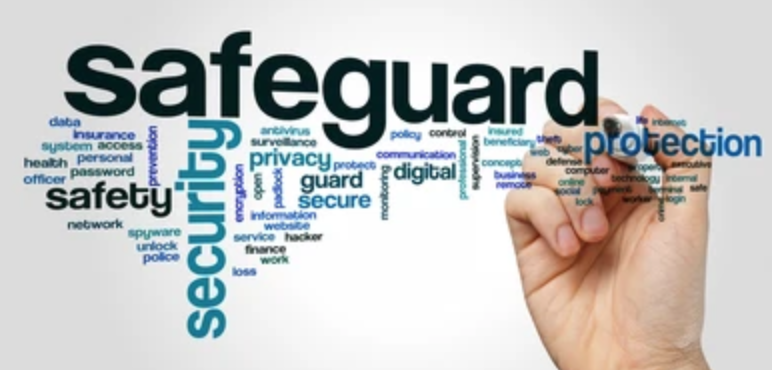What is safeguarding?
Safeguarding your client is a critical aspect in your role as a self-employed carer. Whilst most carer experiences are positive and rewarding, there may be occasions when you have a concern about the wellbeing or safety of your client. These could cover physical, mental, sexual, or emotional abuse, or financial manipulation or exploitation.
How to recognise a potential safeguarding issue.
As a self-employed carer, recognising a potential safeguarding issue is the first step towards ensuring the safety and welfare of your clients. Your client may be afraid to talk about any problems, or they may not even be aware the behaviour towards them is abusive, manipulative, harmful, passive aggressive bullying or gaslighting.
Please remember to report urgent concerns immediately to the police on 999.
Common signs of a safeguarding issue may include:
- Unexplained injuries.
- Sudden changes in ‘normal’ behaviour, i.e. snapping, agitation, short fuse.
- Signs of emotional distress, tearfulness.
- Sudden or increased anxiety.
- Low mood/depression.
- Financial exploitation.
5 steps to deal with a safeguarding issue.
- Document your concerns. Documenting your observations accurately is the first step for a self-employed carer when identifying a potential safeguarding issue. PocketCarer has templates and forms for these to be noted and securely stored on the PocketCarer cloud. Your documents can then be safely accessed or shared with the relevant parties if required. Your observations should be a detailed record, including dates, times, and descriptions of what you witnessed. Include any conversations or interactions that raised concerns. This documentation will be crucial if you take your concerns further.
- Communicate with your client. When you suspect a safeguarding issue, try to approach your client directly and privately. Discuss your concerns sensitively, ensuring you maintain their dignity and respect. Allow them to express their feelings and thoughts, and reassure them that you are there to help and support them.
- Consult and Seek Advice. As a self-employed carer, it’s important to understand that you are not alone when facing safeguarding concerns. Reach out to relevant authorities such as the Local Safeguarding Adults Board (LSAB) Adult Social Services or Adult Protective Services. Discuss your concerns and observations with the safeguarding teams who can provide guidance on the appropriate steps to take and offer advice based on their expertise. Additionally, consider discussing the issue with trusted colleagues in your micro team, mentors, or support networks to gain further insight and support.
- Maintain Confidentiality. Throughout the safeguarding process, it is critical to maintain strict confidentiality. Share information only with authorised individuals or organisations involved in the investigation or support process. Respecting privacy is essential in building trust with both your client, and the relevant authorities. Remember, detailed information about the safeguarding issue should only be shared on a ‘need to know’ basis with relevant people. PocketCarer provides the perfect solution for maintaining confidentiality. As all information is noted and recorded via the PocketCarer app and stored on a secure cloud, there is no risk of information being seen by the wrong person.
- Seek support for yourself. Dealing with safeguarding issues can be emotionally challenging for self-employed carers. It’s important to take care of your own wellbeing throughout this process. Seek support for yourself if you feel you may need it. Counselling services, support groups, or helplines can provide guidance and emotional assistance. If you are a member of NACAS, they offer support with carers’ health and wellbeing. Online platforms and private groups for self-employed carers, such as the Self-Employed Carers group (SEC) on Facebook offer fantastic practical and emotional support.
Who can you report your safeguarding concerns to?
- Local Safeguarding adults board (LASB) The local council will have details
- Adult social services or
- Adult protective services for the relevant area.
- Police – for cases of immediate danger or criminal activity.
- Disclosure and Barring Service (DBS): If you have concerns about an individual’s suitability to work with your client, or other vulnerable people, you can make a referral to the DBS. They can carry out a background check and provide information on the person’s criminal record, if any.
PocketCarer safeguards self-employed carers
As a self-employed carer, you have a responsibility to ensure the safety and well-being of your clients or their family members. Understanding the process of safeguarding issues is crucial for addressing concerns promptly and effectively. By documenting incidents, communicating sensitively, seeking advice, and reporting concerns to the appropriate authorities, you can play a pivotal role in protecting your clients and make a positive impact upon their lives. The PocketCarer app offers templates, forms and documents to use for recording safeguarding issues and more. All records can be stored on the secure PocketCarer cloud. Your first month is a FREE TRIAL and if you choose to continue (we’re sure you will!) then just £7.99 a month or £79.99 a year – giving you 2 months’ free. You will not be charged if you cancel your subscription within the first month. The cost is also a tax deductible expense. Read our blog on tax deductible expenses as a self-employed carer here.
Download the PocketCarer app FREE today




